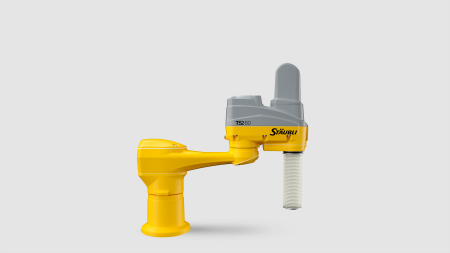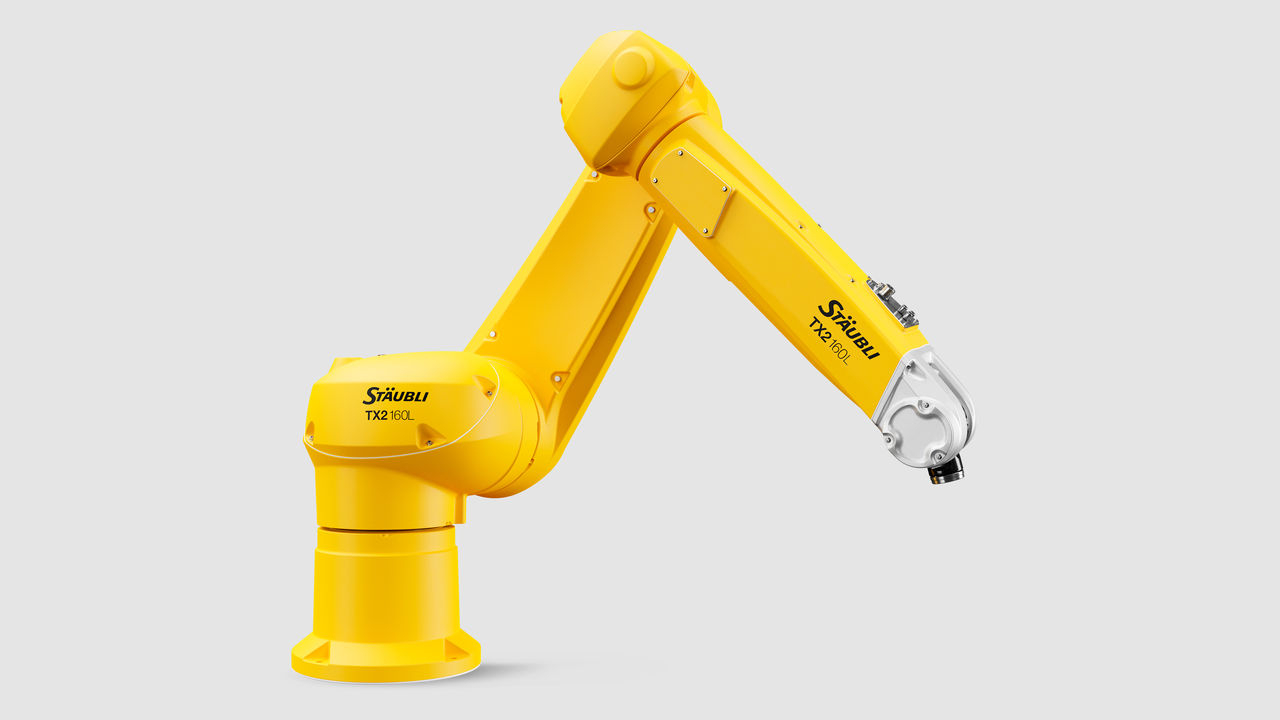- Europe
- Americas
- Asia and Middle East
- Africa and Oceania
SUCCESS STORY
Manufacture of vehicle brake light switches for the Volkswagen Group
Automotive supplier TRW produces eight million brake light switches a year for Volkswagen Group. To optimize production, TRW turned to Stäubli for its expertise as well as its TS60 SCARA and RX160 6-axis robots, two ultra-high-precision robots.
CUSTOMER BENEFITS
- Economical large-scale mass production
- Complies with the most stringent QA requirements
- Fast and accurate robot handling
- Meets demanding cycle time specifications
TASK
Reliable mass production
The production of eight million brake light switches annually is subject to its own set of laws. Key factors include output and process reliability. A pioneering plant with an efficient precision injection molding machine and two ultra-precise robots at its heart is mastering those jobs where cycle time is critical.
When a modern car manufacturer relies on just one provider for the mass production of a component, it amounts to both an honor and a responsibility for the chosen supplier. Body Control Systems (BCS), a subsidiary of worldwide automotive supplier TRW, is responsible for the production of eight million brake light switches annually for the Volkswagen Group.
Since June 2011, a plant developed by automation experts M.A.i. has been responsible for carrying out the task. An injection molding machine is at the heart of the cell. Four contact pins per brake light switch are molded using an eight-way machine tool. All loading and unloading operations must be completed in just 5.7 seconds during "tool-open time".
SOLUTION
A masterpiece in automation
The production process begins with the feeding of two different-sized contacts via two stamping lines. A Stäubli SCARA TS60 first picks four short and then four long contacts from the appropriate transfer station on the stamping line and passes them to a buffer store. The ultra-fast and extremely precise SCARA machine copes beautifully with this job. Eight trips are necessary to completely fill the buffer with a total of 32 contacts.
This buffer store is located within the working range of the large Stäubli six-axis robot. The RX160 gathers the 32 contact pins from the store and starts a cycle that is optimized down to the last detail, since the work of loading and unloading the injection molding machine must take place within a timeframe of just 5.7 seconds. To reliably comply with this cycle time specification, the Stäubli RX160 must fulfil a complex set of requirements. The robot must be very fast while sacrificing nothing in terms of accuracy. The plant works to tolerances of a few hundredths of a millimeter when loading the tool. The Stäubli RX160 meets users' expectations in every way, with the gripper technology making a huge contribution.
CUSTOMER USAGE
Continuous digital process chain
One unique feature is the use of an insertion piston to feed the tool with the total of 32 contact pins required for eight finished parts per cycle. Thanks to special indexation and a floating mounting, the robot centers exactly on the tool, making the highly accurate insertion process a reliable and fast operation. The RX160 has yet another major advantage: compact design and internal wiring. With its slender arm, the robot can safely reach into the injection molding machine without any external cables getting tangled up.
Over 10,000 brake light switches leave the production cell per shift. With only 2 to 3 defective parts per 10,000 units, it is an almost zero-fault production. The plant also meets all requirements, producing parts reliably, quickly and economically. With the large-scale production of eight million switches annually to contend with, BCS could not have it any other way.


